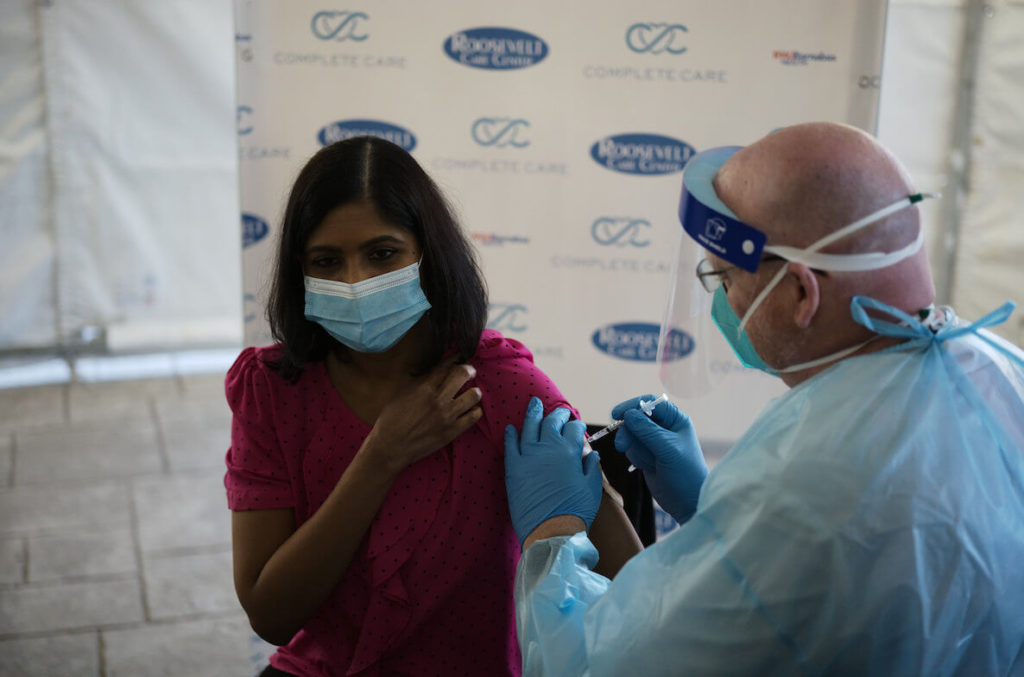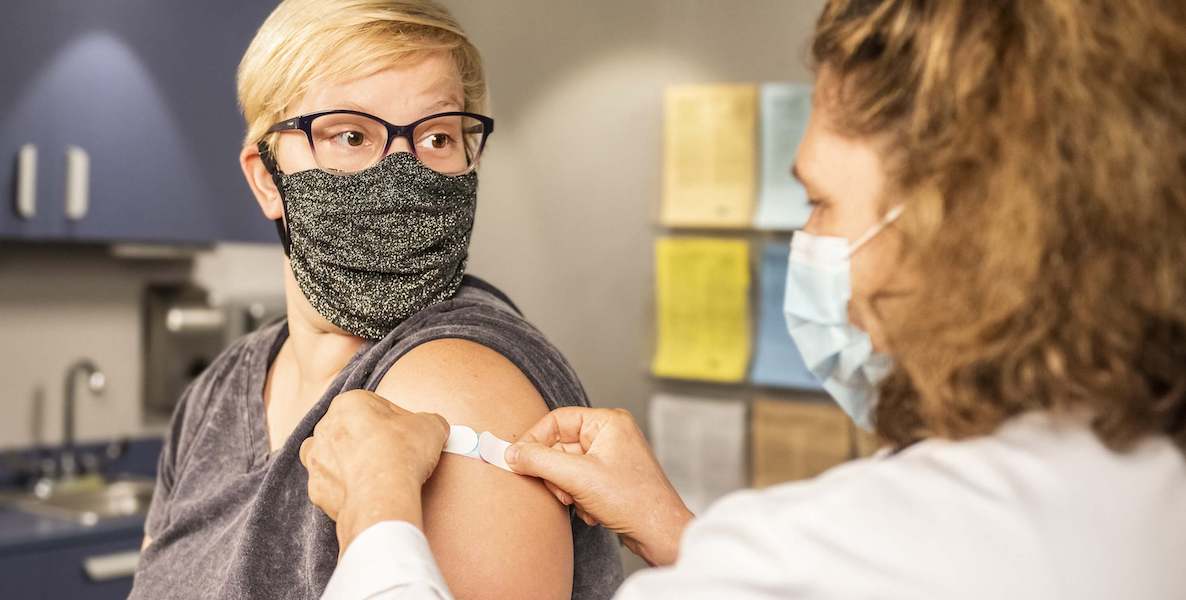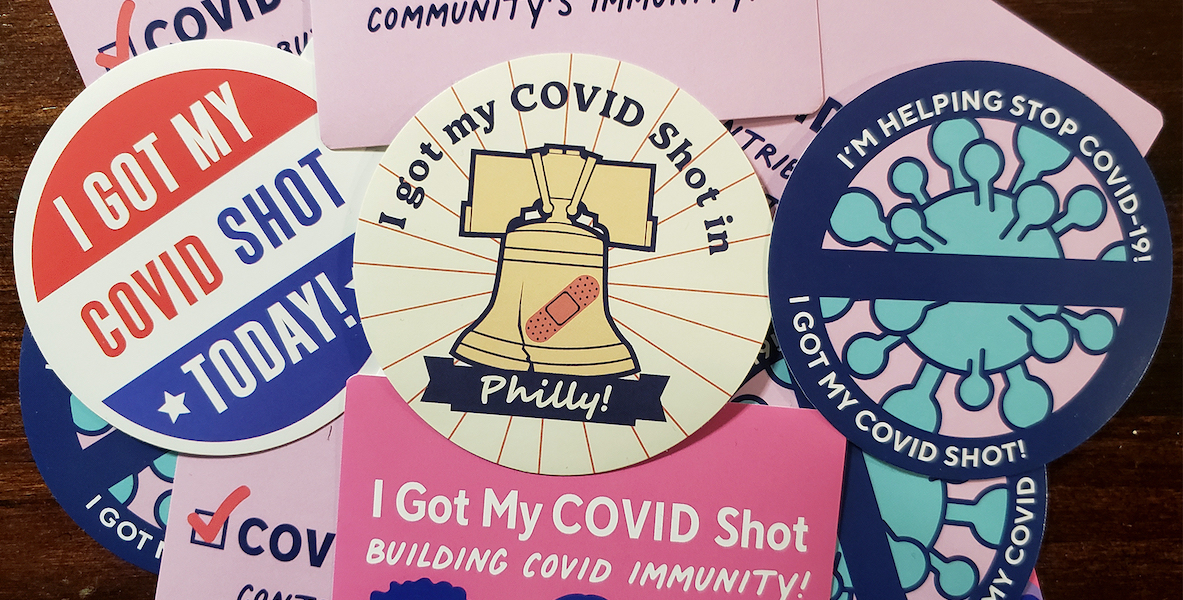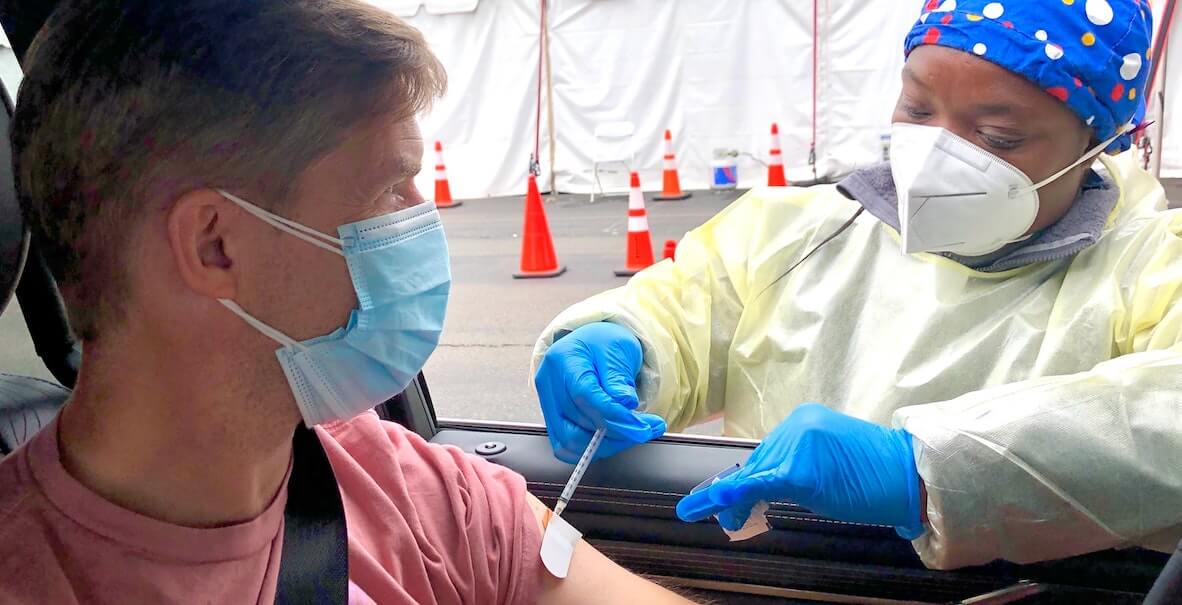There’s not very much that Americans can see eye-to-eye on anymore — including, depressingly, the value of getting a Covid vaccine. And so it feels only fitting that Ohio Governor Mike DeWine, desperate to raise his state’s lagging vaccination rates, latched onto the one thing (the last thing?) that most of us can still agree is good: money.
DeWine announced last week that he’d be earmarking $5 million dollars of his state’s federal coronavirus relief money, partnering with the state lottery, and raffling off a million bucks apiece to five vaccinated Ohioans. That’s not all: Five vaccinated kids between the ages of 12 and 17 would be entered in a lottery to win a full ride to one of the state schools.
So far, the “Vax-a-million” plan has had its intended effect: Within a week, 113,000 Ohioans went to get shots, a 53 percent week-to-week jump, according to ABC News. At present, that state is about 38 percent vaxxed.
MORE ON PHILADELPHIA VACCINATION EFFORTS
Now, we could easily fret over what all of this says about America and its citizenry today, but that’s not nearly as much fun as daydreaming about what you might do with a million bucks. “Can you imagine?” I sighed to my husband when the news made headlines. “It’d be absolutely life-changing.”
“Yeah,” he answered: “So would getting rid of Covid.”
How PA is doing
Alas, Pennsylvania is no Ohio. (Who ever thought we’d say this with regret?) Here in PA, where vaccination rates are a little better — according to Governor Wolf’s press office, 55 percent of us have gotten our first doses; 49 percent of us are fully vaccinated — we’re still relying solely on the incentives of moral responsibility and solidarity to get more of us inoculated. It’s about decency, Wolf says.
“I think Pennsylvanians are just decent human beings and will do the right thing for the people around them,” Wolf told reporters in a press conference earlier this month. He pointed to the senior citizens of the state, who are currently 96 percent vaxxed. “There was no incentive,” he says. “They just wanted to keep themselves safe, and they wanted to keep their family members and friends safe. I think that’s what will motivate Pennsylvanians.”
Arguably, though, seniors — who have suffered higher mortality rates than other groups — did indeed have an incentive beyond the common good: avoiding death. And in any case, at a moment when the Inquirer is reporting that shots are going to waste because not enough people are getting them, a moment when half of us still are in danger of catching and spreading the virus to children and adults who can’t get a vaccine, a moment when your definition of decency and mine might not actually line up — why in God’s name wouldn’t you throw everything you’ve got at this?
Vaxxing for prizes
Plenty of states and cities are trying. New York recently followed suit after Ohio, offering $20 lottery tickets in a $5 million “Vax-and-Scratch” lottery; Maryland, too, just announced a $40,000 daily lottery over 40 days for inoculated citizens, with a $400,000 grand prize on July 4. (That state is also giving $100 to state employees who get the shot.)
At a moment when the Inquirer is reporting that shots are going to waste because not enough people are getting them, why in God’s name wouldn’t you throw everything you’ve got at this?
In Memphis, it’s a car. In West Virginia, it’s $100 savings bonds. In Maine, it’s fishing and hunting licenses, park passes and the like. In Jersey and Connecticut, it’s a beer and a drink, respectively. (Okay, so some incentives aren’t quite as incentivizing. And it’s worth noting that success for the smaller incentive programs has been moderate, and in some cases, seemingly nonexistent.)
It would seem that many leaders around the country are willing to take a shot on the idea — backed up by academia — that financial incentives can impact health behaviors, particularly when it’s a one-and-done situation, rather than something sustained. (Hey, this was the same principle that inspired us here at the Citizen to give away $1,000 to three Philadelphians who voted in the recent primary election. Just ask this guy how glad he was to win it.)

It’s true, of course, that money doesn’t address the underlying issues here: Incentives don’t fix the fact that a lot of the vaccine problem is about good, clear information, as well as (well-earned) trust deficits in some communities. But incentives don’t have to be a silver bullet: They’re just a tool in the arsenal. In other words: YES to decency. YES to informational and targeted marketing campaigns of the sort researchers are promoting. And YES to the money, baby.
“A fascinating experiment”
Truth is, part of what makes the idea so appealing is also just the chance to see if something like this can move the needle in big, important, widespread health initiatives. It’s a “fascinating experiment,” wrote Kevin Volpp, the director of the Center for Health Incentives and Behavioral Economics at Penn in a recent Washington Post piece. And “given the substantial public resistance to public and private vaccine mandates, as well as to “vaccine passports” and similar approaches that could be highly effective, a program of this kind could turn out to be a cost effective way to reduce future health and economic costs from Covid-19. Given the stakes, Ohio’s approach is well worth testing.”
Amen to that. In Philly, you can already find small incentives like free drinks or donuts or Uber rides, thanks to local businesses. And that’s nice. But just imagine what some big-time public private partnerships might produce if the folks in power decided to try: Cars! Cash! Eagles tickets! Free Comcast service for a year!
It’s hard to believe these sorts of incentives wouldn’t be — forgive me — a shot in the arm for our inoculation numbers, hovering in the city at about 38 percent of residents 16 and over. The same is true at the state level. Sure, we’ve got decent people, Governor. But we’ve also got federal funds! We’ve got a lottery! Half of our our citizens are still unvaxxed! So let’s do it. Let’s change a few lives. After all, the stakes are nothing short of life as we know it. Or as we once knew it, anyway.
Header Photo: Photo by Alex Mecl on Unsplash







